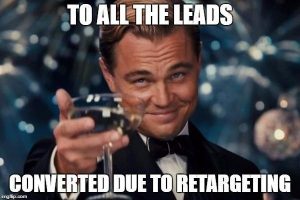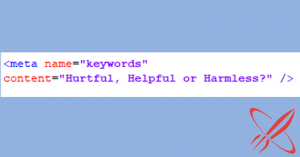If you manage any digital advertising, you are keeping a close eye on a looming Facebook feature that will directly affect your remarketing efforts. This upcoming Facebook feature, referred to as “Clear History,” will provide users the ability to delete third-party data collected from off-Facebook activities and turn off Facebook’s ability to store it with their account.
The announcement of the Clear History feature, which surfaced in 2018, should be leaving you with a couple important advertising questions:
- What is social advertising without Facebook remarketing?
- How does this impact social advertising as a whole?
Privacy in the Age of Digital Marketing
Data transparency, at its core, is a good thing for users. In general, people don’t have access to or know where their online information is being stored and used. A prime example of that lack of knowledge is the Facebook and Cambridge Analytica data scandal. According to Kevin Granville of the New York Times, political data firm Cambridge Analytica gained access to the private information on more than 50 million Facebook users, giving it the ability to identify the personalities of American voters and influence their behavior.
Facebook received the appropriate backlash, and the scandal has resulted in Facebook addressing transparency concerns with features like Clear History. That said, Clear History isn’t getting rid of all off-Facebook user data, but rather it’s striking a balance. According to Marketing Land, “the company is not deleting off-platform activity by users — only making it anonymous — that data will still be available for measurement reports.”
How Does Clear History Impact Ad Targeting?
According to Facebook Business, when someone chooses to completely disconnect their off-Facebook activity, advertisers won’t be able to use any of the collected data for targeting purposes. This means that targeting options, like the Facebook pixel, can’t be used to reach someone with ads.
This is a big deal. The Facebook pixel is the main driver for audience collection and building for successful Facebook campaigns. From e-commerce to lead campaigns, each step a user takes is a valuable action within the marketing funnel. Without the use of remarketing to specific users, advertisers will potentially have to change their entire marketing messaging and strategy. In addition, you may not be able to create or exclude recent purchasers of a product, which could lead to increased CPAs and lower ROAS.

Now, the Clear History will not be activated by default. Not every user will opt-in or use the tool, but the more people that do the less audience you will have to work with. This could lead to frequency issues because of small audiences, resulting in advertisers having to take a step up the funnel from a product specific page to all website users just to be able to remarket. In return, you’ll see ad fatigue and less-targeted ad copy, and those are just some of the problems associated with limited pixel functionality.
How to Adapt Your Digital Marketing Strategies to Privacy Initiatives?
This biggest thing social advertisers can do is understand what features like Clear History mean to their initiatives and preparing for it. The first step is simply plan and test in Facebook Ads beforehand. What is working now in terms of remarketing may not be available by the end of 2019.
Push for custom audience data from your business or your client’s business. Take advantage of the most important information a business has – actual client data. Lifetime Value (LTV), for instance, is a great addition to custom audiences and will allow you to create lookalike audiences based on those LTV audiences. In addition, test in-platform Facebook audiences like interest, behavioral, or demographic audiences.
Find out what works and doesn’t work from a non-remarketing side. Facebook changes and adds these audiences every week. Be in the platform and follow those changes.

What makes social advertising fun is the constant need to adapt. From millennials shifting from Facebook to Twitter to your grandparents playing Candy Crush on Facebook, the social landscape and how users interact with it is constantly changing. Facebook’s business platform follows the same landscape. Embrace the challenge or be left behind. Preparing and getting ahead of future trends will ultimately lead to better knowledge of Facebook’s advertising platform, allowing you to still flourish while others struggle to keep up.





















